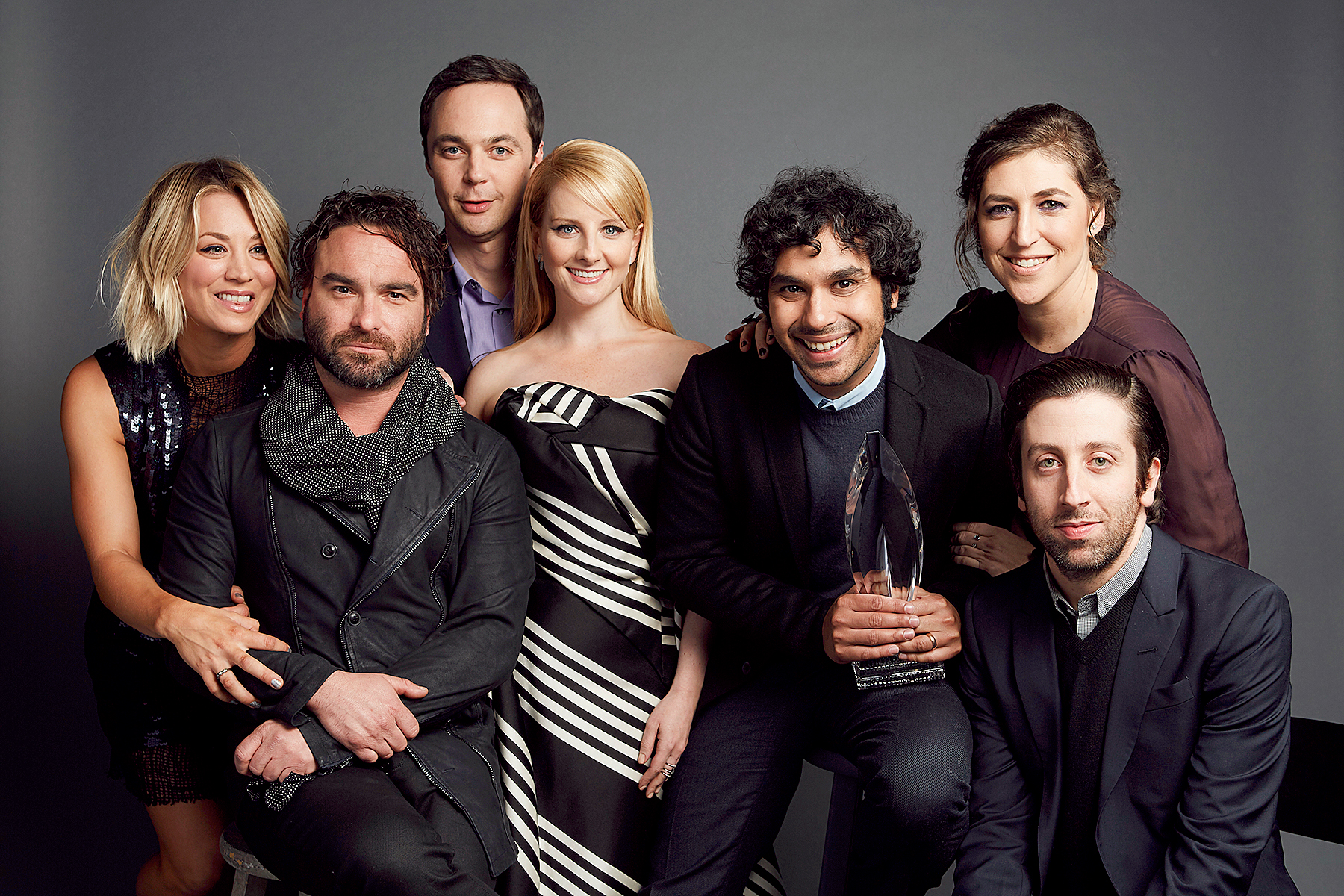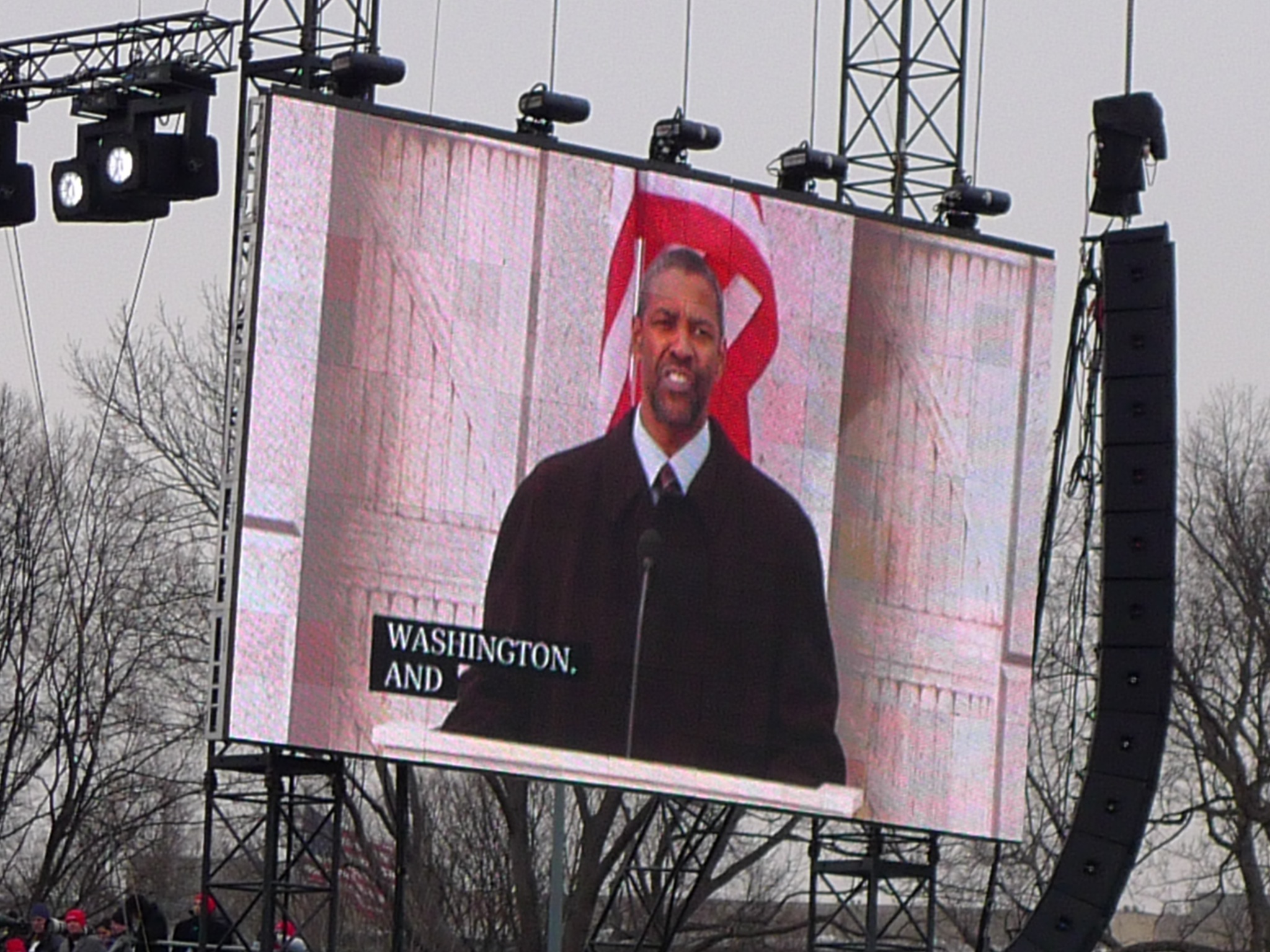
Denzel Washington, a name synonymous with cinematic excellence and profound dramatic performances, stands at a unique juncture in his unparalleled career. In 2020, The New York Times boldly declared him the greatest actor of the 21st century, a testament to his enduring impact and the sheer breadth of his talent. Now, as new projects like ‘Gladiator II’ and ‘Highest 2 Lowest’ surface, the entertainment industry is abuzz with speculation about whether his prolific journey might be nearing its conclusion, sparking widespread discussion about his future on screen and stage.
Washington’s trajectory has been marked by a relentless pursuit of compelling narratives and complex characters, earning him a staggering array of accolades including two Academy Awards, two Golden Globe Awards, and a Tony Award, alongside nominations for a Grammy and two Emmy Awards. His films have collectively grossed over $4.9 billion worldwide, a clear indicator of his immense drawing power and the profound connection he forges with audiences globally. This consistent success underscores why any hint of retirement sends ripples of concern through Hollywood and among his legions of fans.
As we delve into the illustrious career of this singular talent, we trace the moments that have defined his artistry and cemented his status as a living legend. From his formative years on stage to his most iconic big-screen triumphs and his ventures into directing, each step has built upon a legacy of profound storytelling and masterful performance. This retrospective journey not only celebrates his past achievements but also provides crucial context to the current conversation surrounding his future in an industry he has so profoundly shaped.
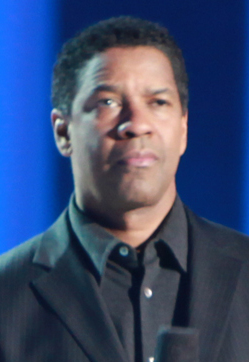
1. From Stage to Screen: Early Career & Breakthrough in *St. Elsewhere*
Denzel Washington’s journey into acting began far from the dazzling lights of Hollywood, rooted deeply in his early life and education. Born in Mount Vernon, New York, in 1954, Washington’s path took a crucial turn when, at 14, his parents divorced, leading his mother to send him to Oakland Military Academy. This decision, as Washington himself noted, was life-changing, steering him away from a potentially detrimental path and towards a future he would define with incredible purpose. His academic pursuits led him to Fordham University, where he earned a BA in Drama and Journalism in 1977.
It was during a semester off from Fordham, while working as a creative arts director at Camp Sloane YMCA, that a colleague’s suggestion to try acting truly sparked his ambition. This casual recommendation reignited a passion, leading him to enroll at Fordham’s Lincoln Center campus to intensely study acting. There, he took on titular roles in Eugene O’Neill’s ‘The Emperor Jones’ and Shakespeare’s ‘Othello’, laying a robust foundation in classical theater.
His formal training continued at the American Conservatory Theater in San Francisco, though he stayed for only a year before making the decisive move back to New York to kickstart his professional acting career. His initial screen acting debut came in the 1977 made-for-television film ‘Wilma’, a docudrama about sprinter Wilma Rudolph, followed by his first Hollywood appearance in the 1981 film ‘Carbon Copy’. He also garnered early critical recognition, sharing a 1982 Distinguished Ensemble Performance Obie Award for his role in the Off-Broadway production ‘A Soldier’s Play’.
A major career breakthrough arrived when Washington took on the role of Dr. Phillip Chandler in NBC’s acclaimed television hospital drama ‘St. Elsewhere’. Running from 1982 to 1988, this series provided him with significant national exposure, making him one of the few African-American actors to remain with the show for its entire six-year run. During this period, he also enriched his resume with appearances in films like ‘A Soldier’s Story’ (1984), ‘Hard Lessons’ (1986), and ‘Power’ (1986), steadily building a reputation for dramatic intensity and compelling presence.
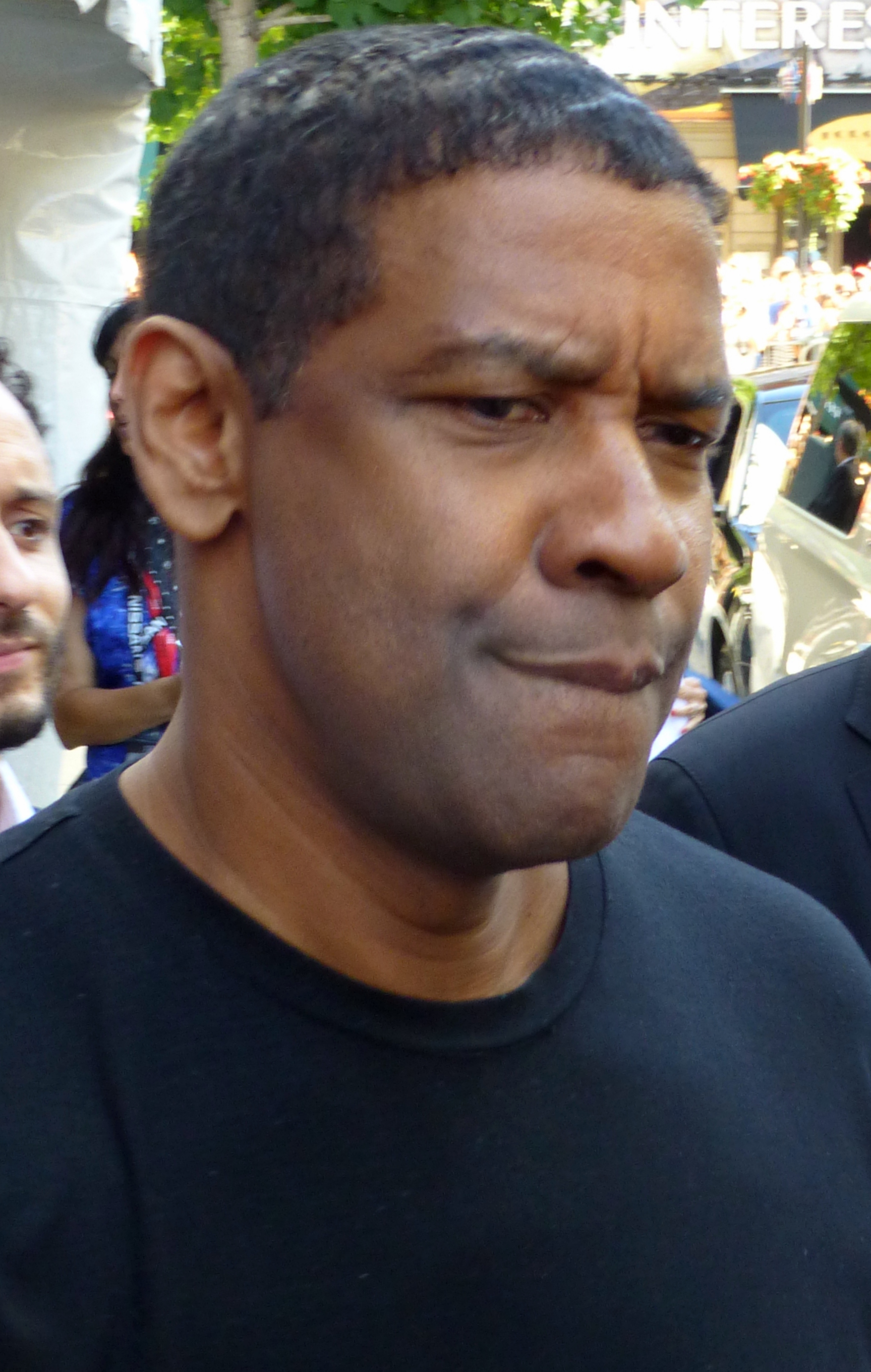
2. Defining the Civil War Hero: Winning the Oscar for *Glory*
As the 1980s progressed, Denzel Washington began to transition more prominently into film, taking on roles that showcased his burgeoning talent and dramatic depth. In 1987, he starred as the South African anti-apartheid political activist Stephen Biko in Richard Attenborough’s ‘Cry Freedom’. This powerful portrayal earned him his first Academy Award nomination for Best Supporting Actor, signaling his arrival as a serious contender in Hollywood.
However, it was his performance in the 1989 war drama ‘Glory’ that truly cemented his status and brought him his first Academy Award. In ‘Glory’, Washington embodied the character of a defiant, self-possessed ex-slave soldier, delivering a performance that resonated deeply with critics and audiences alike. His raw emotion and powerful screen presence in the film were undeniable, portraying the fierce dignity and harrowing struggles of Civil War-era African-American soldiers.
The Academy Award for Best Supporting Actor was a monumental achievement, recognizing the sheer force of his acting in a role that transcended its supporting designation. This victory not only validated his artistic choices but also opened doors to even more challenging and diverse roles. That same year, Washington also appeared in ‘The Mighty Quinn’ and ‘For Queen and Country’, where he played a conflicted British soldier, further demonstrating his versatility across varied narratives.
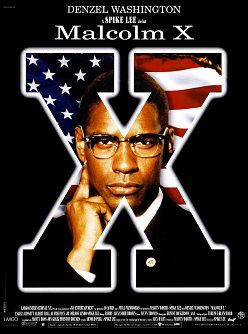
3. Embodying an Icon: The Power of *Malcolm X*
The early 1990s saw Denzel Washington solidify his Hollywood stardom and critical acclaim, diversifying his portfolio with powerful stage and screen performances. In the summer of 1990, he took on the title role in The Public Theater’s production of William Shakespeare’s ‘Richard III’. Mel Gussow of The New York Times lauded Washington as “an actor of range and intensity, [who] is expert at projecting a feeling of controlled rage,” highlighting his mastery of classical theatrical roles.
His collaboration with director Spike Lee continued to flourish, notably with ‘Mo’ Better Blues’ in 1990, where Charles Murray of Empire praised Washington’s “taut portrayal of the driven musician.” This period also included the Mira Nair-directed romantic drama ‘Mississippi Masala’ (1991), where his chemistry with Sarita Choudhury was praised by Roger Ebert, showcasing his ability to deliver compelling performances across different genres and cultural narratives.
A pivotal moment arrived when Washington reunited with Spike Lee for one of his most critically acclaimed and iconic roles: the titular character in the historical epic ‘Malcolm X’ (1992). His portrayal of the Black nationalist leader was transformative, earning widespread critical adoration. Vincent Canby of The New York Times declared, “In Denzel Washington it also has a fine actor who does for ‘Malcolm X’ what Ben Kingsley did for ‘Gandhi.’ Mr. Washington not only looks the part, but he also has the psychological heft, the intelligence and the reserve to give the film the dramatic excitement.”
His deeply immersive and nuanced performance in ‘Malcolm X’ earned him another nomination for the Academy Award for Best Actor, cementing his reputation as an actor capable of embodying complex historical figures with authenticity and profound depth. The film’s success and Washington’s acclaimed performance also marked the establishment of his production company, Mundy Lane Entertainment, signifying his growing influence beyond acting.
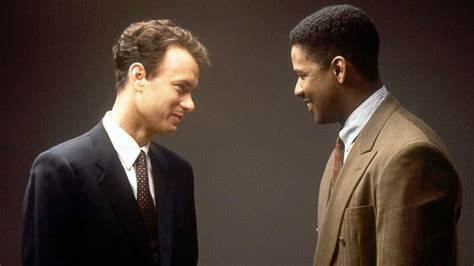
4. Dramatic Depths: *Philadelphia*, *The Pelican Brief*, and the Thriller Era
Following the groundbreaking success of ‘Malcolm X’, Denzel Washington continued to select roles that pushed boundaries and engaged with timely social issues. In 1993, he co-starred with Tom Hanks in Jonathan Demme’s ‘Philadelphia’, playing the lawyer defending a gay man with AIDS. This role was significant not only for its dramatic weight but also for its cultural impact, with Sight & Sound noting that “Casting Washington in the lead guaranteed the film the black audience that otherwise might not have had much interest in the problems of a rich white homoual with Aids.” It underscored his ability to connect with diverse audiences on sensitive subjects.
The early and mid-1990s also saw Washington star in a series of highly successful thrillers, showcasing his versatility and growing appeal as a leading man. He shared the screen with Julia Roberts in ‘The Pelican Brief’ (1993), a gripping legal thriller that performed exceptionally well at the box office. His capacity to deliver intense, layered performances made him a natural fit for the genre, combining intellectual prowess with compelling screen presence.
Another notable thriller from this period was ‘Crimson Tide’ (1995), where he starred alongside Gene Hackman in a high-stakes submarine drama, further solidifying his command of action-packed narratives. Beyond thrillers, Washington also demonstrated his range by appearing in Kenneth Branagh’s Shakespearean comedy ‘Much Ado About Nothing’. In 1996, he delivered a “probing, reserved and sensitively drawn performance” in ‘Courage Under Fire’, investigating a female chopper commander’s worthiness for the Medal of Honor, a role Variety suggested “might have been played by the likes of a Montgomery Clift or William Holden” in another era. This period of diverse projects culminated in the romantic comedy ‘The Preacher’s Wife’ (1996), where he starred opposite Whitney Houston, a heartwarming remake that showcased his charm.
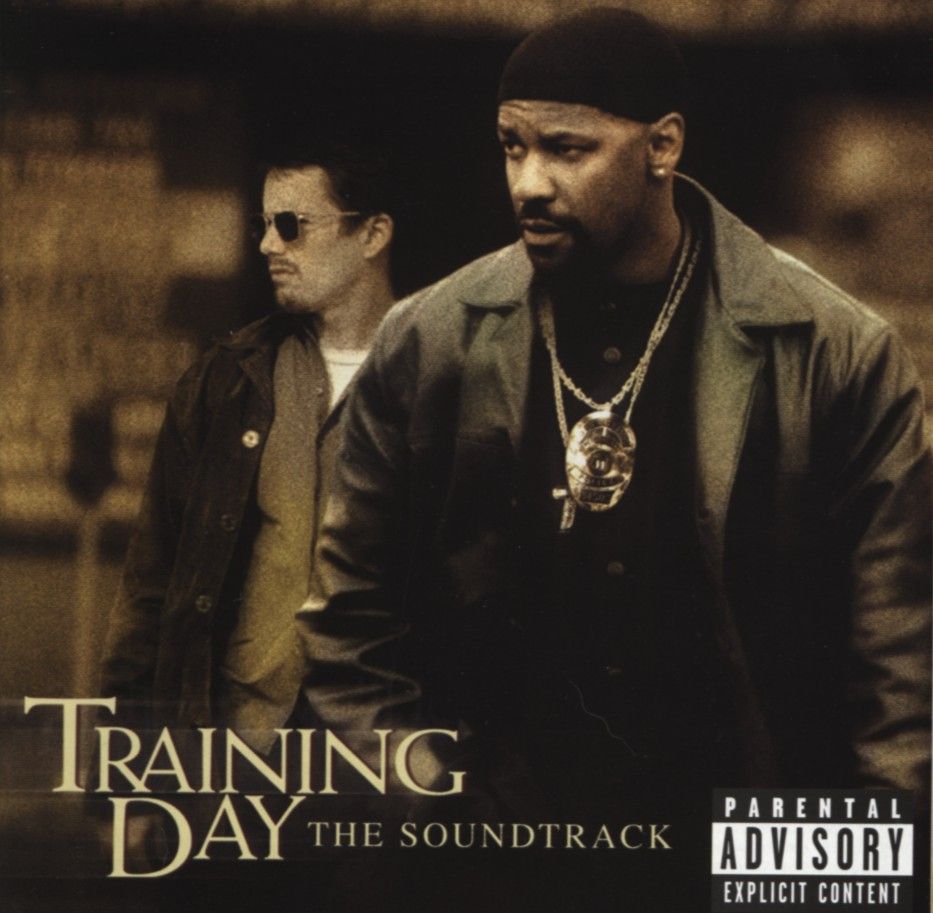
5. A Villainous Turn: Capturing the Best Actor Oscar for *Training Day*
As the 1990s drew to a close and the new millennium began, Denzel Washington continued to deliver powerful performances that expanded his range and cemented his status as a cinematic powerhouse. In 1998, he reunited with Spike Lee for ‘He Got Game’, playing a father serving a prison term, a role that deepened their fruitful creative partnership. That same year, he ventured into supernatural horror with ‘Fallen’ (1998) and later starred alongside Angelina Jolie in the crime thriller ‘The Bone Collector’ (1999).
A landmark performance came with ‘The Hurricane’ (1999), a biographical film about boxer Rubin ‘Hurricane’ Carter, whose wrongful conviction for triple murder was overturned after nearly two decades in prison. Washington’s portrayal earned widespread critical acclaim, a Silver Bear Award at the Berlin International Film Festival, and a Golden Globe Award for Best Actor – Motion Picture Drama in 2000. Roger Ebert famously wrote of his performance, “This is one of Denzel Washington’s great performances, on a par with his work in Malcolm X,” highlighting the profound impact of his work.
However, it was his transformative role as Detective Alonzo Harris, a corrupt Los Angeles police officer, in Antoine Fuqua’s crime thriller ‘Training Day’ (2001) that earned him his second Academy Award. This role marked a significant departure from his usual heroic characters, allowing him to explore a darker, more complex antagonist. Roger Ebert characterized his performance as a “rare villainous role,” noting that “he’s like a monster from a horror film, unkillable and implacable,” underscoring the raw power and terrifying realism he brought to the character.
Washington’s victory for Best Actor made him only the second African-American actor to win in that category, following Sidney Poitier, who received an Honorary Academy Award on the very same night, adding historical significance to the moment. This win was a definitive moment in his career, showcasing his fearless commitment to character and his ability to command the screen in even the most morally ambiguous roles, further solidifying his place in Hollywood’s pantheon.
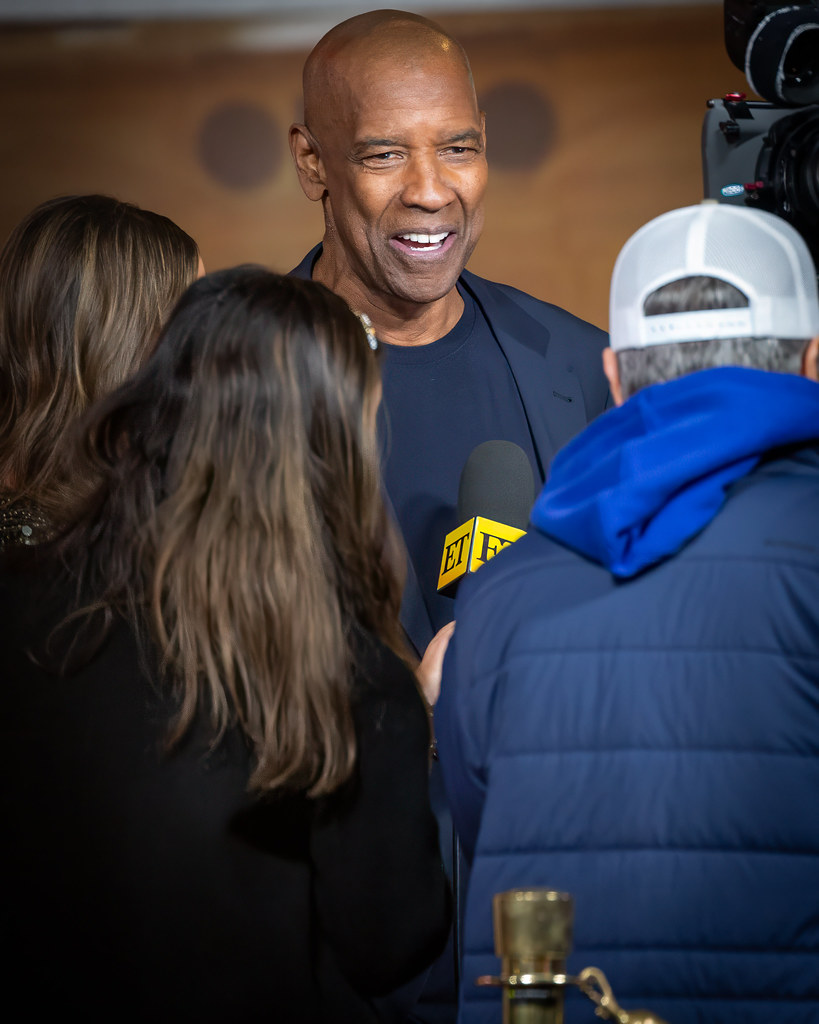
6. Beyond Acting: Directorial Debut with *Antwone Fisher*
After achieving the pinnacle of acting recognition with his second Academy Award, Denzel Washington did not rest on his laurels; instead, he continued to explore diverse roles while also venturing into new creative territories. In 2000, he delivered a compelling performance as Herman Boone, the high school football coach in the Disney sports drama film ‘Remember the Titans’, a box office success that grossed over $100 million in the U.S. Andrew O’Hehir of Salon described him as “the linchpin of Remember the Titans; he’s a commanding actor in a commanding role, and as memorable as he was in The Hurricane.”
In 2002, Washington starred in the healthcare-themed drama ‘John Q.’, portraying John Quincy Archibald, a father desperate to save his son’s life. While the film garnered mixed reviews, Washington’s intense and humane performance was widely praised, with BBC film critic Neil Smith noting that “What credibility there is comes from Washington’s intense, humane performance and the supporting players’ sterling attempts to rise above the stereotypical roles with which they have been saddled.” This demonstrated his ability to elevate material through his sheer acting prowess.
That same year marked a significant milestone in Washington’s career as he made his directorial debut with the drama ‘Antwone Fisher’ (2002). Not only did he helm the project, but he also co-starred in it as a Navy psychiatrist, guiding the narrative with a confident hand. The film, based on a true story, was met with positive reviews, signaling his formidable talent extends beyond performing.
Stephen Holden of The New York Times offered glowing praise for Washington’s inaugural effort behind the camera, writing, “Mr. Washington shows a confident grasp of cinematic narrative in a hearty meat-and-potatoes style. But the most remarkable aspect of his behind-the-camera debut is his brilliantly surefooted handling of actors.” Holden further commended his acting in the film, adding that Washington “[is] so sensitively reactive that his performance seems more lived than acted,” highlighting his dual success as both a director and an actor in the project.
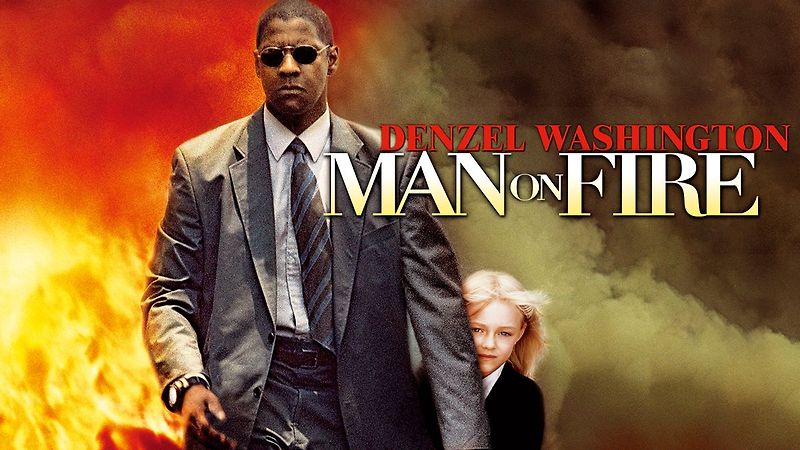
7. Action Star & Collaborations: *Man on Fire*, *Inside Man*, and Tony Scott
The mid-2000s saw Denzel Washington solidify his status as a formidable action star, headlining a series of successful thrillers that consistently performed well at the box office. Between 2003 and 2006, he appeared in high-octane films such as Carl Franklin’s ‘Out of Time’ (2003) alongside Eva Mendes, and Tony Scott’s ‘Man on Fire’ (2004), where he starred opposite a young Dakota Fanning. These roles showcased his capacity for intense, physically demanding performances while retaining his characteristic dramatic depth.
In 2004, Washington also acted opposite Meryl Streep in the remake of ‘The Manchurian Candidate’, demonstrating his continued engagement with politically charged and complex narratives. His choice of projects highlighted a keen eye for both commercial viability and artistic challenge, allowing him to explore diverse facets of the thriller genre while working with celebrated directors and co-stars.
One of his most notable collaborations during this period was with director Spike Lee on the bank heist thriller ‘Inside Man’ (2006), co-starring Jodie Foster and Clive Owen. Todd McCarthy of Variety praised the film, calling it “flashy cast, clever script and vibrant showcasing of New York City are strong plusses for Spike Lee’s most mainstream studio venture.” Later that year, Washington continued his run of successful thrillers with the time-travel movie ‘Déjà Vu’, further cementing his appeal in the genre.
In 2005, Washington made a significant return to the stage, playing Brutus in a Broadway revival of William Shakespeare’s ‘Julius Caesar’. Despite receiving mixed reviews from critics, with Ben Brantley of The New York Times observing that “Washington does not embarrass himself… but… he can’t help getting lost amid the wandering, mismatched crowd,” the production was a consistent sell-out throughout its limited run, underscoring his enduring star power and dedication to live theater. He also reunited with Russell Crowe for Ridley Scott’s crime drama ‘American Gangster’ (2007) and directed ‘The Great Debaters’ before concluding the decade with his fifth and final collaboration with Tony Scott on ‘The Taking of Pelham 123’ (2009).
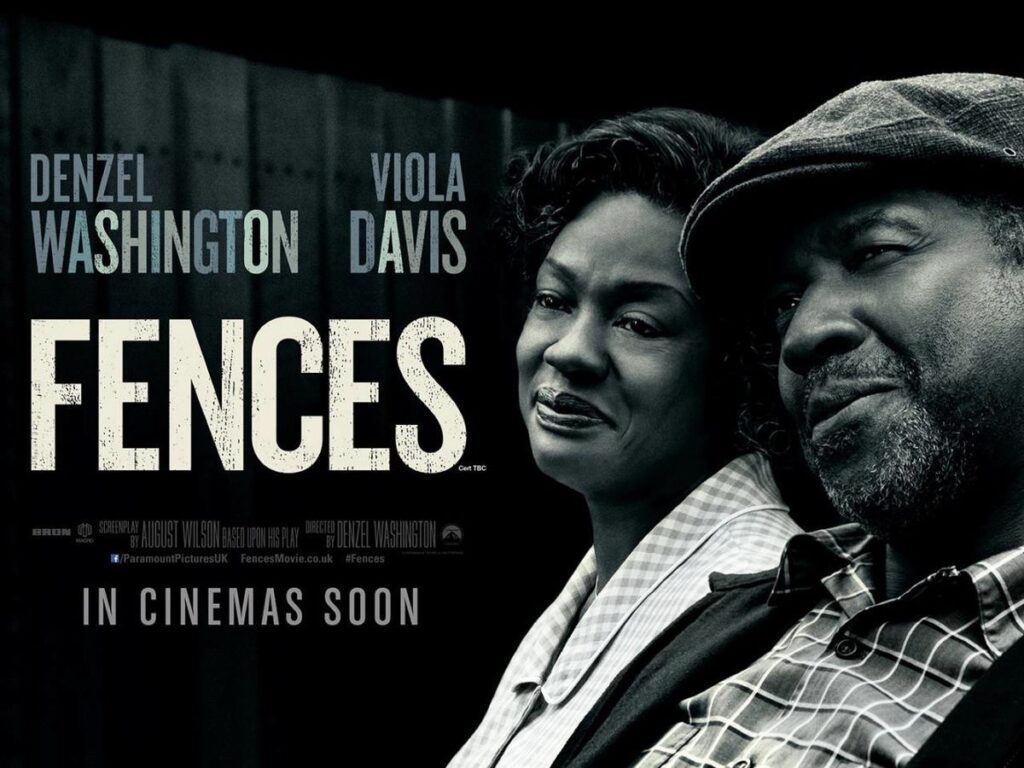
8. Triumphant Return to Broadway: Tony Award for *Fences*
Denzel Washington consistently honored his theatrical roots, making powerful returns to the stage throughout his career. His 2010 Broadway revival of August Wilson’s “Fences,” where he starred as Troy Maxson alongside Viola Davis, served as a profound reminder of his formidable live performance capabilities. The production garnered immense critical acclaim, highlighting Washington’s commanding presence and his unique ability to embody such complex, layered characters.
Theater critic Ben Brantley of The New York Times praised Washington’s “fluid naturalness,” noting how his “face and stance alone provide fascinating (and damning) glimpses into Troy’s attitudes.” This demonstrated his exceptional capacity to merge the nuanced intensity required for screen acting with the expansive demands of live theater, creating a deeply resonant and memorable performance for audiences and critics alike.
His compelling portrayal of Troy Maxson, a disillusioned working-class father grappling with past regrets, culminated in the prestigious Tony Award for Best Actor in a Play on June 13, 2010. This honor cemented his mastery across diverse artistic mediums, adding a coveted theatrical award to his extensive list of film accolades, underscoring his complete artistic prowess.
Read more about: Denzel Washington at 69: A Resplendent Chronicle of Command, Craft, and Enduring Cultural Resonance
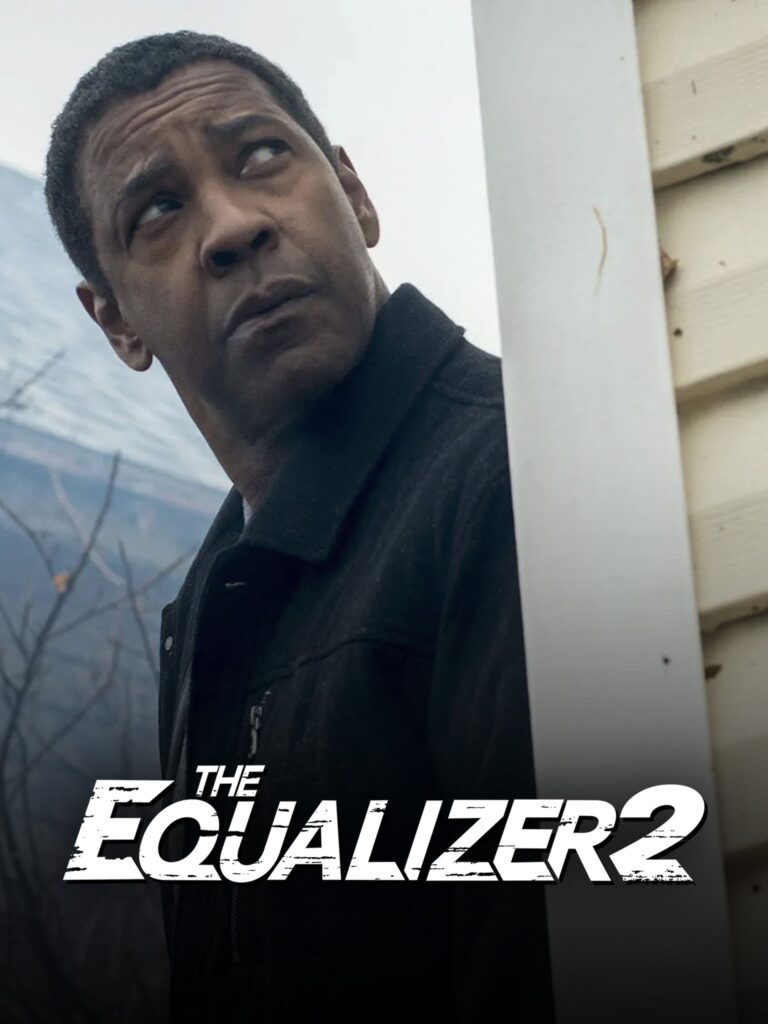
9. Navigating Complex Characters: *Flight* and *The Equalizer* Franchis
The early 2010s marked a period where Denzel Washington continually expanded his dramatic range, tackling roles that delved into intricate human psychology. In 2012, he starred in “Flight,” delivering an Academy Award-nominated performance as an alcoholic airline pilot under intense investigation following a catastrophic plane crash. This role showcased his unparalleled ability to convey profound internal conflict and moral ambiguity with raw, captivating intensity.
Prior to this, Washington demonstrated his commitment to authenticity in “Safe House” (2012), co-starring with Ryan Reynolds. His reported preparation, which included subjecting himself to a waterboarding session, underscored a relentless dedication to his craft, even for physically and emotionally demanding scenarios. He also explored the action genre in “2 Guns” (2013) alongside Mark Wahlberg, confirming his sustained appeal in high-octane narratives.
A defining new chapter in his action star persona began with “The Equalizer” in 2014. In this Antoine Fuqua-directed thriller, Washington embodied Robert McCall, a retired black ops operative who becomes an avenging angel for the vulnerable. The character resonated, leading to a successful franchise that saw Washington reprise the role in “The Equalizer 2” (2018) and conclude the trilogy with “The Equalizer 3” (2023). These films expertly blended his dramatic gravitas with intense action, solidifying his late-career status as a formidable action hero.
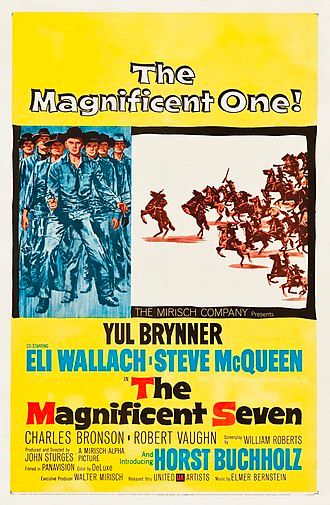
10. First Foray into the West: *The Magnificent Seven*
In a notable career first, Denzel Washington ventured into the Western genre with “The Magnificent Seven” in 2016. This remake of the classic 1960 film assembled a star-studded cast, including Chris Pratt and Ethan Hawke, offering Washington a fresh opportunity to explore a historically significant American cinematic landscape. He took on the role of Sam Chisolm, “the Bounty Hunter” from Wichita, Kansas, a character reimagined to suit his commanding presence.
Principal photography commenced in May 2015, with the film premiering at the 2016 Toronto International Film Festival before its wide U.S. release on September 23, 2016. Audiences eagerly embraced his powerful take on the Western hero, appreciating the fresh perspective he brought to the genre. Washington revealed he hadn’t watched many Westerns growing up but approached the project with deep respect for its lineage, having studied “Seven Samurai,” the original inspiration.
His decision to star stemmed from director Antoine Fuqua’s personal appeal, highlighting Washington’s readiness to embrace new artistic challenges and trust in key directorial partnerships. His performance further underscored his remarkable versatility, proving his ability to seamlessly inhabit any cinematic world, even one previously uncharted in his acclaimed career.

11. Directing August Wilson: The Acclaimed Film Adaptation of *Fences*
Building on his acclaimed Broadway return, Denzel Washington deepened his engagement with August Wilson’s iconic work by directing and starring in the 2016 film adaptation of “Fences.” This cinematic endeavor, again featuring Viola Davis, successfully brought Wilson’s intricate narrative to a global audience, preserving the play’s essence while adeptly translating its profound power to the screen.
Set in 1950s Pittsburgh, the film portrayed Troy Maxson, a former Negro league baseball player navigating family dynamics and racial tensions. Washington’s dual role earned significant critical praise, with Owen Gleiberman of Variety noting, “Washington, as both actor and director, gets the conversation humming…Washington tears through it with a joyful ferocity, like a man possessed.”
His compelling performance garnered nominations for Best Actor at the Golden Globe Awards, Screen Actors Guild Awards, and the Academy Awards. The film received three other Oscar nominations, including Best Picture, and secured Viola Davis her first Academy Award for Best Supporting Actress, a clear testament to Washington’s insightful directorial hand and his ability to draw out powerful performances.
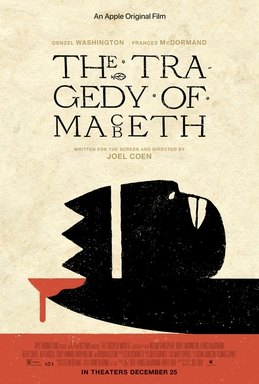
12. Shakespearean Mastery: *The Tragedy of Macbeth* and *Othello*
Denzel Washington’s profound connection to classical theater, particularly Shakespeare, continues to define aspects of his recent career. In 2021, he delivered a universally acclaimed performance as the titular character in the stark film adaptation of “The Tragedy of Macbeth.” His nuanced and powerful portrayal earned multiple prestigious nominations, including an Academy Award, reaffirming his mastery as an interpreter of the Bard’s timeless narratives.
This cinematic achievement was part of a productive period, as Washington also helmed the drama “A Journal for Jordan” in 2021. While “A Journal for Jordan” garnered mixed critical reviews, it highlighted his commitment to diverse storytelling projects from both sides of the camera.
Looking ahead to 2025, Washington is set to revisit Shakespeare, returning to Broadway to portray the complex and tragic figure of Othello. This highly anticipated revival, featuring Jake Gyllenhaal and directed by Kenny Leon, emphasizes his enduring dedication to classical drama. Though the “Othello” production and Washington’s performance received mixed reviews, his mere presence remains a powerful draw, even as he embraces roles that invite deeper analytical scrutiny.
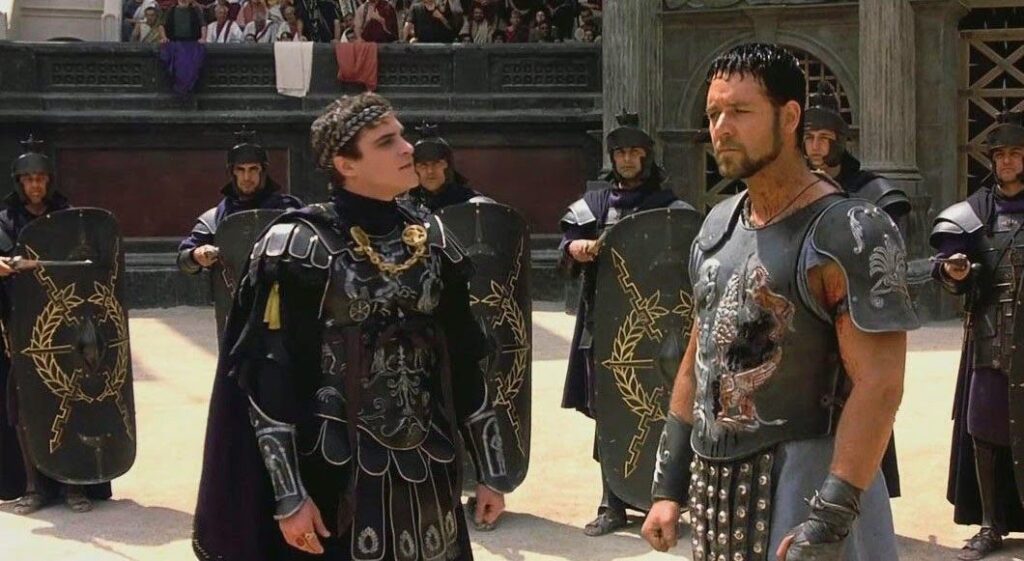
13. Anticipated Final Performances: *Gladiator II* and *Highest 2 Lowest*
Discussions about Denzel Washington’s potential retirement bring unique intensity to his upcoming film projects, particularly two high-profile releases. In 2024, Washington reunited with Ridley Scott for “Gladiator II,” the much-anticipated sequel. Starring alongside Paul Mescal, early reports describe Washington’s performance as scene-stealing, a standout aspect earning him a Golden Globe Award nomination. This role emphatically demonstrates his continued ability to command the screen in major productions, even as he enters a later phase of his career.
Further adding to this significant slate, 2025 will see Washington collaborate with Spike Lee on the police procedural drama “Highest 2 Lowest.” This remake of Akira Kurosawa’s “High and Low,” produced jointly by A24 and Apple TV+, features Jeffrey Wright and Ilfenesh Hadera. The pairing of Washington and Lee on such a revered narrative has generated considerable industry buzz, highlighting his enduring appeal and impactful creative partnerships.
These major film endeavors are central to the pervasive industry speculation regarding Washington’s future. Their emergence has fueled widespread discussion about whether his prolific journey might be nearing its conclusion. While no official statement regarding these being his *final* performances has been issued, their high caliber and visibility contribute significantly to the narrative of a monumental career potentially reaching a dignified close.
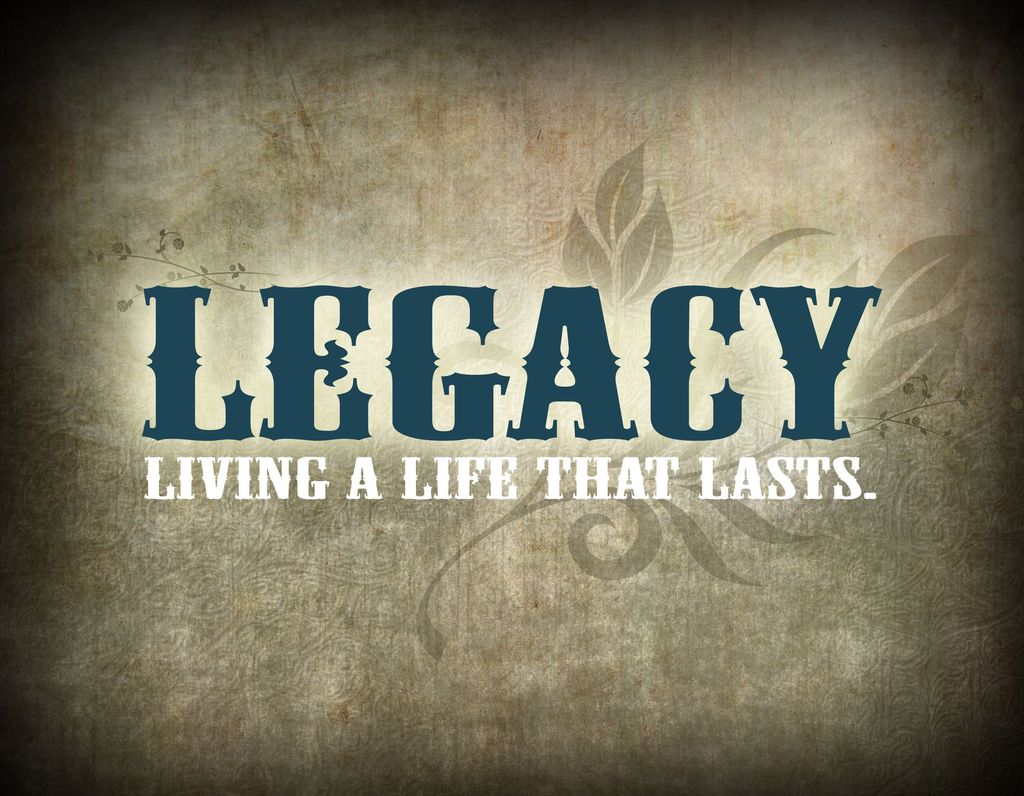
14. Enduring Legacy: Accolades, Influence, and Philanthropy
Beyond individual triumphs, Denzel Washington’s career has forged an enduring legacy, characterized by unparalleled accolades, widespread influence, and deep philanthropy. Hailed by The New York Times in 2020 as the greatest actor of the 21st century, his vast collection of honors includes two Academy Awards, two Golden Globe Awards, and a Tony Award, alongside Grammy and Emmy nominations. These underscore a career defined by consistent excellence and artistic integrity.
His contributions are further amplified by prestigious honorary awards, such as the Cecil B. DeMille Award (2016), the AFI Life Achievement Award (2019), and the Honorary Palme d’Or (2025). Significantly, he is slated to receive the Presidential Medal of Freedom in 2025, an honor that speaks to his broader societal impact. Washington consistently identifies as a stage actor first, a philosophy shaping his distinctive career path.
Washington’s influence extends deeply into the acting community; he has actively mentored and inspired a new generation of talent, including Chadwick Boseman, Mahershala Ali, and Jake Gyllenhaal. He credits James Earl Jones as his hero and Sidney Poitier as a pivotal mentor. This rich lineage reflects a profound commitment to nurturing talent and upholding the highest standards of the acting profession.
His philanthropic endeavors are as extensive as his artistic achievements. Since 1993, Washington has served as national spokesman for the Boys & Girls Clubs of America, participating in PSAs and sitting on its board. He has made substantial donations to various causes, including his church, Nelson Mandela’s Children’s Fund, and the Fisher House Foundation. This blend of artistic mastery and dedicated civic engagement firmly establishes Denzel Washington as a living legend whose influence will resonate for generations, irrespective of his future on screen or stage.
Denzel Washington’s career represents a profound masterclass in artistic longevity, unwavering integrity, and transformative impact, proving that true stardom blossoms from dedicated craft and a commitment to storytelling that deeply resonates. As the industry contemplates his potential retirement, it is unequivocally clear that his legacy is already profoundly cast, a testament to a performer who has consistently elevated the art form, inspired countless individuals, and leveraged his immense platform for genuine good. Whether he continues to grace our screens and stages for years to come or chooses a graceful exit, his monumental contributions will forever serve as an illuminating beacon for future generations of artists and an endless source of inspiration for audiences across the globe.

